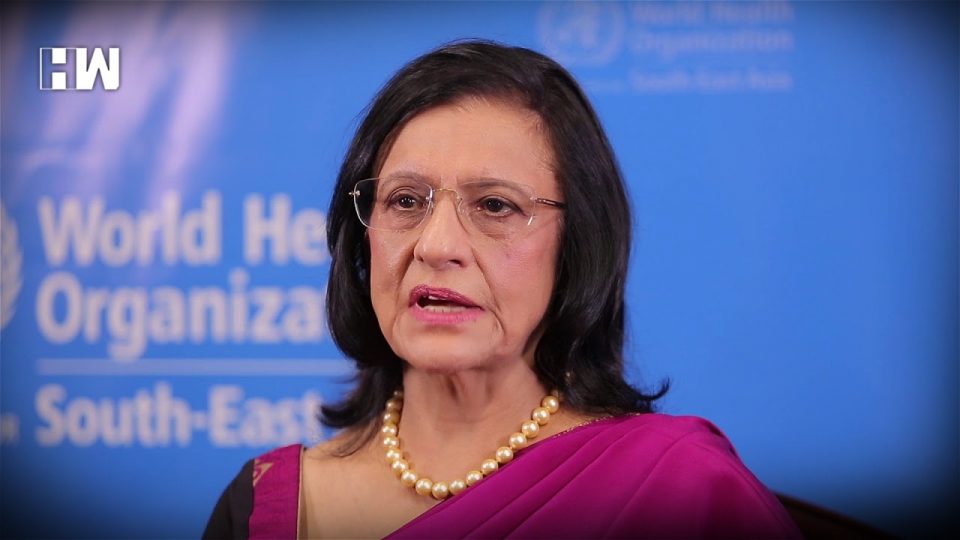New Delhi | Poonam Khetrapal Singh has been appointed the South-East Asia regional director of the World Health Organization (WHO) for a second five-year term.
The WHO Executive Board Saturday unanimously endorsed Khetrapal Singh, who was earlier unanimously nominated by 11 member-countries of the region for another five years.
Congratulating her, WHO Director-General Tedros Adhanom Ghebreyesus said, “The first woman to become Regional Director of WHO South-East Asia Region, you have provided dynamic leadership in a Region that accounts for a quarter of the world’s population but a disproportionate burden of diseases. Under your leadership, the Region has made remarkable progress.”
In her acceptance speech, Khetrapal Singh said, “It is a privilege to once again be appointed as Regional Director of WHO South-East Asia Region. The confidence you have reposed in me is humbling.”
Outlining her vision for the second term that begins on February 1, Khetrapal Singh said sustaining the gains, accelerating progress to finish the unfinished agenda and innovating would be the approach to ensure health and wellbeing of the 1.8 billion people across the Region.
In her first term, she focused on building an increasingly responsive and accountable WHO in the Region, while prioritising persisting and emerging epidemiological and demographic challenges; promoting universal health coverage, strengthening emergency risk management and articulating a strong regional voice in global health agenda.
She identified eight flagship priority programmes, focusing on results and accountability, which are cascading into sustainable and result-oriented efforts.
Detailing her vision for her next term in her acceptance speech at the Executive Board, Khetrapal Singh said, “We must sustain the gains we made. It means ensuring we hold fast to our progress in diseases elimination, which history shows can return with a vengeance if attention falters, and ensuring that there is no room for complacency. We must accelerate sustainable progress.”
Her eight regional flagship priority programmes are aligned to WHO’s global goals and health targets for Sustainable Development Goal 3.
“We must innovate,” Khetrapal Singh said, adding innovation means taking advantage of the existing opportunities, being agile in applying research findings and developing new policies to meet the challenges.
“Ending TB will be difficult unless we develop and apply rapid diagnostics, which test and diagnose large populations in a short time. Likewise, we cannot hope to eradicate key neglected tropical diseases which largely affect the poor unless we can create and implement policies that address the needs of specific communities in specific areas,” she said.
The Regional Director said there is a robust commitment to leave no one behind. WHO’s ‘triple billion’ targets, the Sustainable Development Goal 3 and the efforts to achieve universal health coverage focus on equitable access and equity.
As an independent media platform, we do not take advertisements from governments and corporate houses. It is you, our readers, who have supported us on our journey to do honest and unbiased journalism. Please contribute, so that we can continue to do the same in future.

